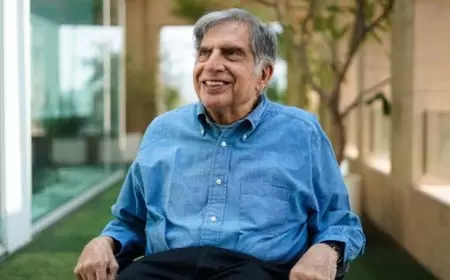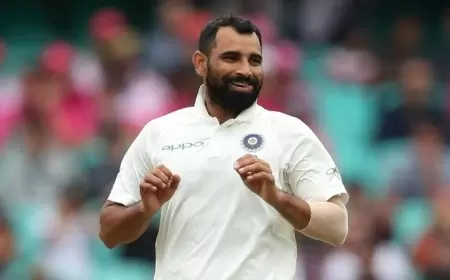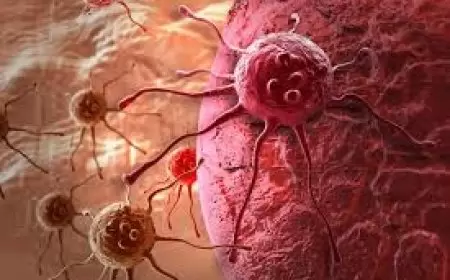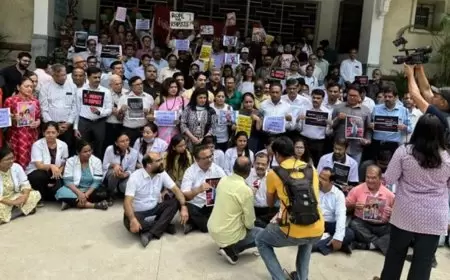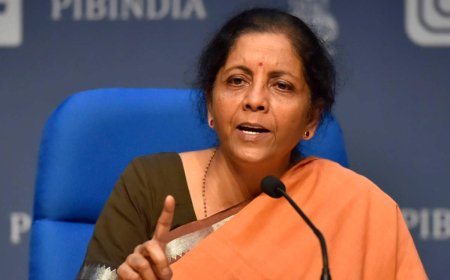Nirmala Sitharaman: Architect of India’s Economic Policies
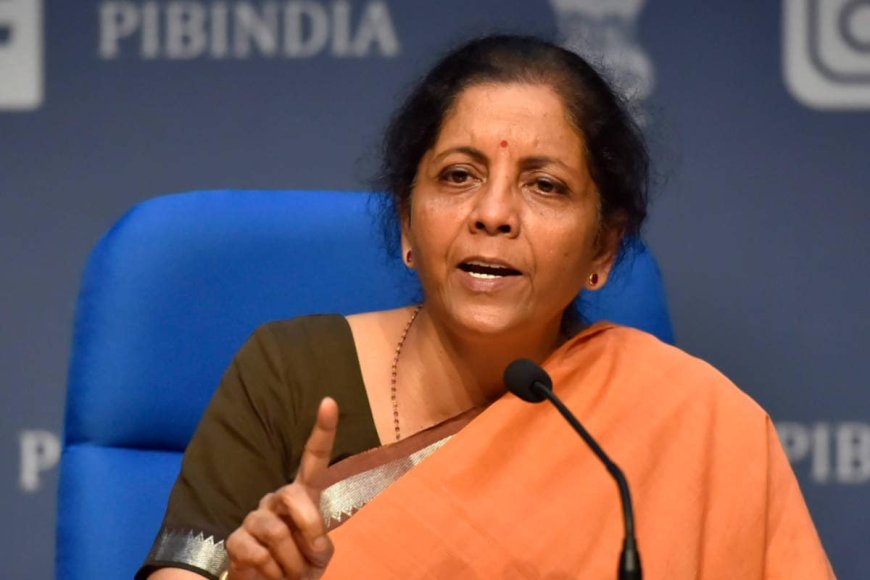
Born in Madurai, Tamil Nadu, on August 18, 1959, Nirmala Sitharaman, who is a significant Indian politician/economist, holds an influential position in India's current economic and political environment; she serves as the Finance Minister as it stands. From her high school education days, she has always been a bright student passionate about politics and ready to serve in that capacity.
Early Life and Education
Nirmala Sitharaman was raised in a middle-class family with a father who worked at Indian Railways. At the same time, her mother was a housewife who was deeply involved in literary works that pushed her daughter toward educational pursuits. She started studying in Tamil Nadu but moved around a lot before finally arriving at Seethalakshmi Ramaswami College in Tiruchirapalli, where she received an Economics degree: this has nurtured her interest in studying. During her time spent at Jawaharlal Nehru University (JNU) in New Delhi, she carried out an M-Phil thesis as well as an M.Com. degree program. Before her graduation, she dropped out of M.Phil under unknown circumstances. The debates that centered on world economics led her broadly into matters of the world economy while at the same time engendering national interest.
Professional Beginnings
Nirmala Sitharaman briefly worked as an economist’s assistant at the Agricultural Engineers Association in London after finishing school, a position that led her to remember the passion she had for global economic matters in her youth. She has also briefly worked for the BBC World Service and Price Waterhouse in a senior managerial role, overseeing research and analysis. Her exposure to international platforms, gave her a wide view of economic and financial issues, something that was very important for her political career later on.
Entry into Politics
I met Nirmala Sitharaman the day she joined politics in India in 2006, and she immediately became a member of the Bharatiya Janata Party (BJP). She was the new face of an opposition party, having gained experience and now becoming intellectual was a quick rise from within. “Ms. In 2010 she became the national spokesperson of BJP and it is her eloquent character that won her a significant voice in various political and economic issues.
Role and Achievement of an Individual Minister
Nirmala Sitharaman’s first major ministerial appointment came in 2014, when Narendra Modi appointed her as the Minister of State for Commerce and Industry with an independent charge. Her time was devoted to bettering India’s trade relations with other nations, spurring Foreign Direct investment, or FDI, and promoting easier regulatory processes that would make it more attractive for any other international investor. Among the major policies passed by the government during her term of 8 years in office was the ‘Make in India’ policy initiative, which aimed at promoting the growth and development of the nation’s manufacturing industry.
In 2017, Sitharaman made history by becoming the first female full-time Defense Minister in India. During her time as Defense Minister, she accomplished many major milestones, including finalizing the Rafale fighter aircraft deal with France and placing a strong emphasis on defense production indigenization. She played a key role in defining India's national security strategy and ensuring that the military was modernized.
Finance Minister of India
The first woman to choose that position in the wake of being the Prime Minister was the first Indian woman to have held the finance portfolio once after Indira Gandhi. Although grappling with the deteriorating growth of the Indian economy, increasing joblessness levels, and the non-performing assets-laden banking sector, she was appointed the minister.
Finance Minister Sitharaman has been involved in numerous major economic reformations on various levels.’ She made her inaugural Union Budget proposal in July 2019. Measures were revealed aimed at enhancing infrastructural facilities; easing business operations and enhancing social welfare, among other things.’ She reduced corporate taxes below what Europe or the US offer in a bid to spur investment and spur economic growth."
The coronavirus pandemic impacted the economy during Sitharaman’s tenure. Consequently, Sitharaman formulated some relief packages under the Atmanirbhar Bharat scheme, which were specifically aimed at small and medium businesses (SMEs), the farm sector, and healthcare to deal with this unique economic crisis. Such relief measures included cash transfers right into people’s hands, loan guarantees, and also initiatives that promote the deepening of private sector engagement in major industries.
Challenges and Criticisms
Despite having a lot of achievements, Nirmala Sitharaman has been criticized heavily and she has faced several impediments during her term in office. Her critics have specifically pointed to her slow pace in reviving economies, improper implementation of some economic policies, and handling of non-performing assets in public sector banks. The government’s position on controversial issues such as demonetization and the Goods and Services Tax has caused widespread controversy as well.
Despite this, Sitharaman’s approach has remained the same. She constantly stresses the importance of structural reforms that can tackle long-term economic problems. Her criticism and reactions are practical; they are processed to demonstrate a high level of understanding regarding the intricacies of creating economic policies.
Personal Life and Legacy
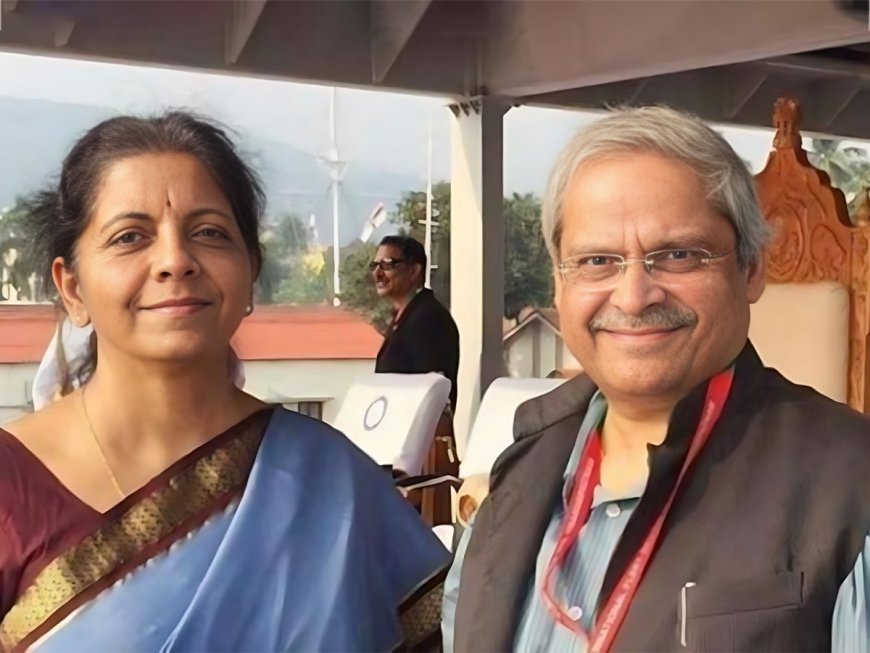
Nirmala Sitharaman happily married Professor Parakala Prabhakar, a high profile economist and political commentator and the couple has a daughter. Sitharaman has a demanding career in which she has managed to balance her personal and professional life so far despite speaking about the importance of family support on several occasions.
It is beyond dispute that she was a trailblazer for women in both the Indian political and governance spheres; no one would dispute the fact. It is through breaking numerous glass ceilings that she has shown that sheer industry and unwavering resolve can beat any generic gender given.
Conclusion
Nirmala Sitharaman was born into a family that had humble beginnings but eventually rose to prominence out of sheer effort and determination. Nevertheless, she has always come out victorious in the face of numerous academic challenges and during her earlier days in public service. However, as the head of the country’s money matters it is evident that whatever she chooses to do henceforth will have an impact on the nation’s fortunes in the future.
What's Your Reaction?












